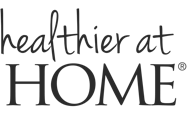




Wise Health Care Choices » Complementary & Alternative Medicine



Resources

HealthyLearn®
www.HealthyLearn.com. Click on MedlinePlus®.


National Center for Complementary and Alternative Medicine (NCCAM)
888.644.6226 | www.nccam.nih.gov

Herb
Proposed Uses
Warnings



Echinacea.
To prevent colds & flu, fight infections, and boost the immune system.
Could cause liver damage if taken with antifungal medicines (e.g., Nizoral). Since it boosts the immune system, it should not be taken by persons with autoimmune conditions (e.g., AIDS, lupus, multiple sclerosis) or who take medicines (e.g., cyclosporine) to suppress the immune system.

Ginko.
To improve mental function and promote circulation to the limbs.
Do not use if you take blood-thinners (e.g., aspirin, warfarin) or have a bleeding disorder.

Ginseng.
To increase energy.
Don’t use if you take medicines for high blood pressure, diabetes, or heart disease. Don’t use if you take MAOI medicines for depression (e.g., Nardil, Parnate). Ginseng can cause irritability when mixed with caffeine.

Kava.
To treat anxiety, insomnia, premenstrual syndrome, and stress.
FDA advisory links products with Kava to severe liver damage. Don’t use if you take anti-anxiety and antidepressant medicines. Don’t use with alcohol.

Saw Palmetto.
To treat symptoms of an enlarged prostate.
Don’t self-diagnose. See a doctor. Follow his or her advice. Don’t take with medicine prescribed for an enlarged prostate.

St. John’s Wort.
To treat mild to moderate depression.
Should not be used with prescribed antidepressants, such as SSRIs (e.g., Zoloft, Paxil) and MAOIs (e.g., Nardil, Parnate). Makes birth control pills and some medicines for asthma, HIV, and heart disease less effective.


Office of Dietary Supplements

2012 © All Rights Reserved - American Institute for Preventive Medicine | Disclaimer | Phone: 800.345.2476 | www.HealthyLife.com


